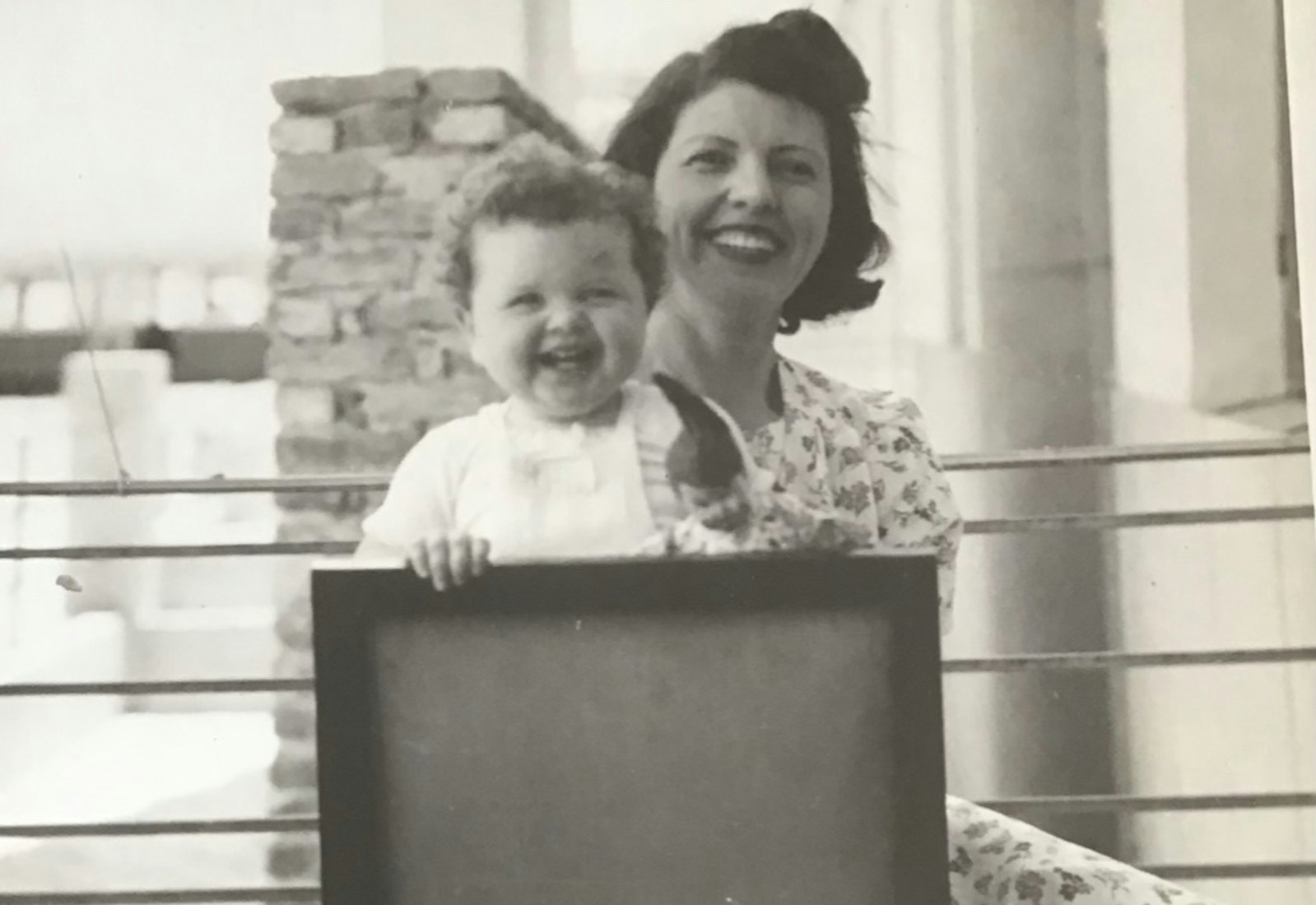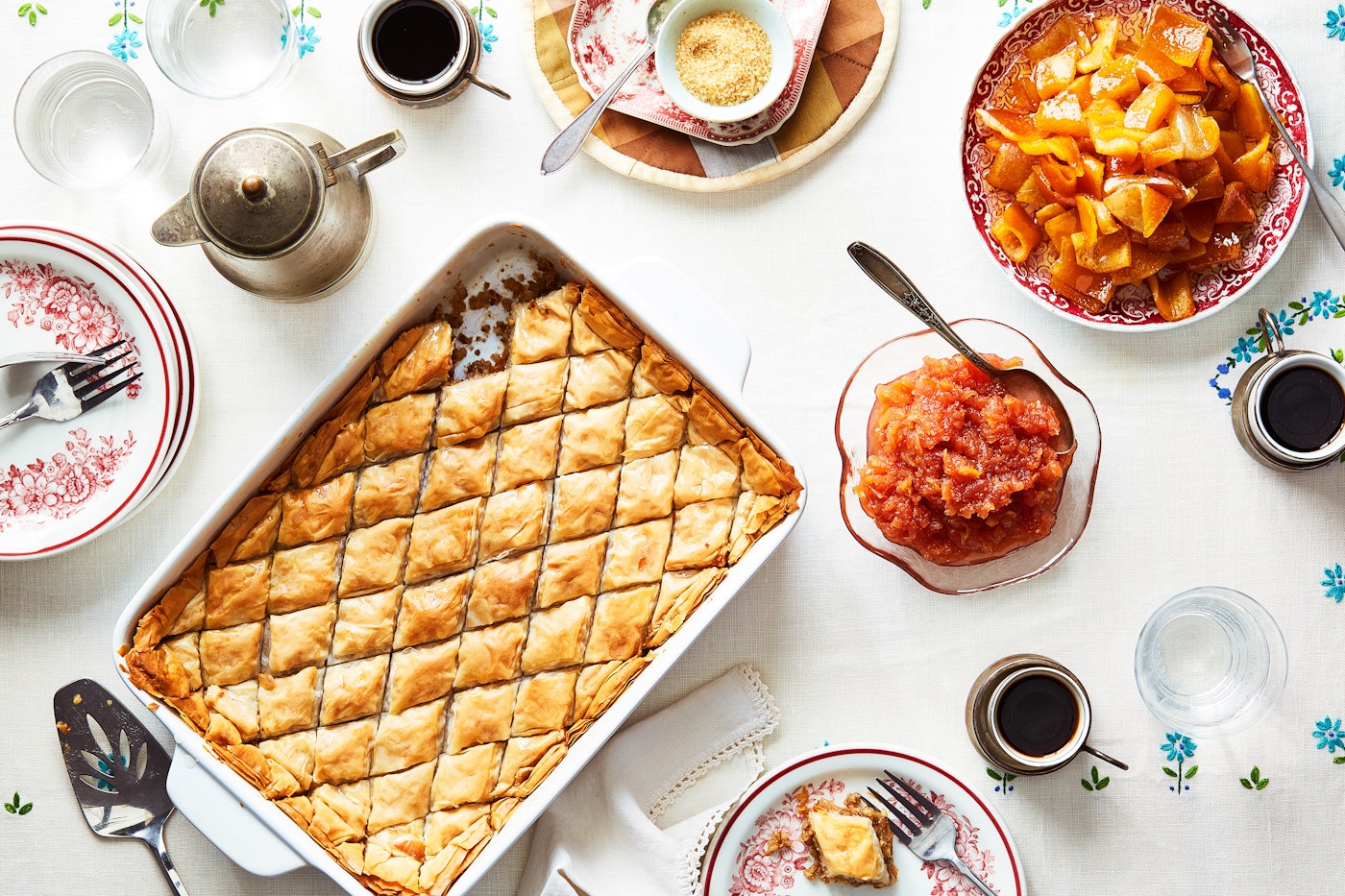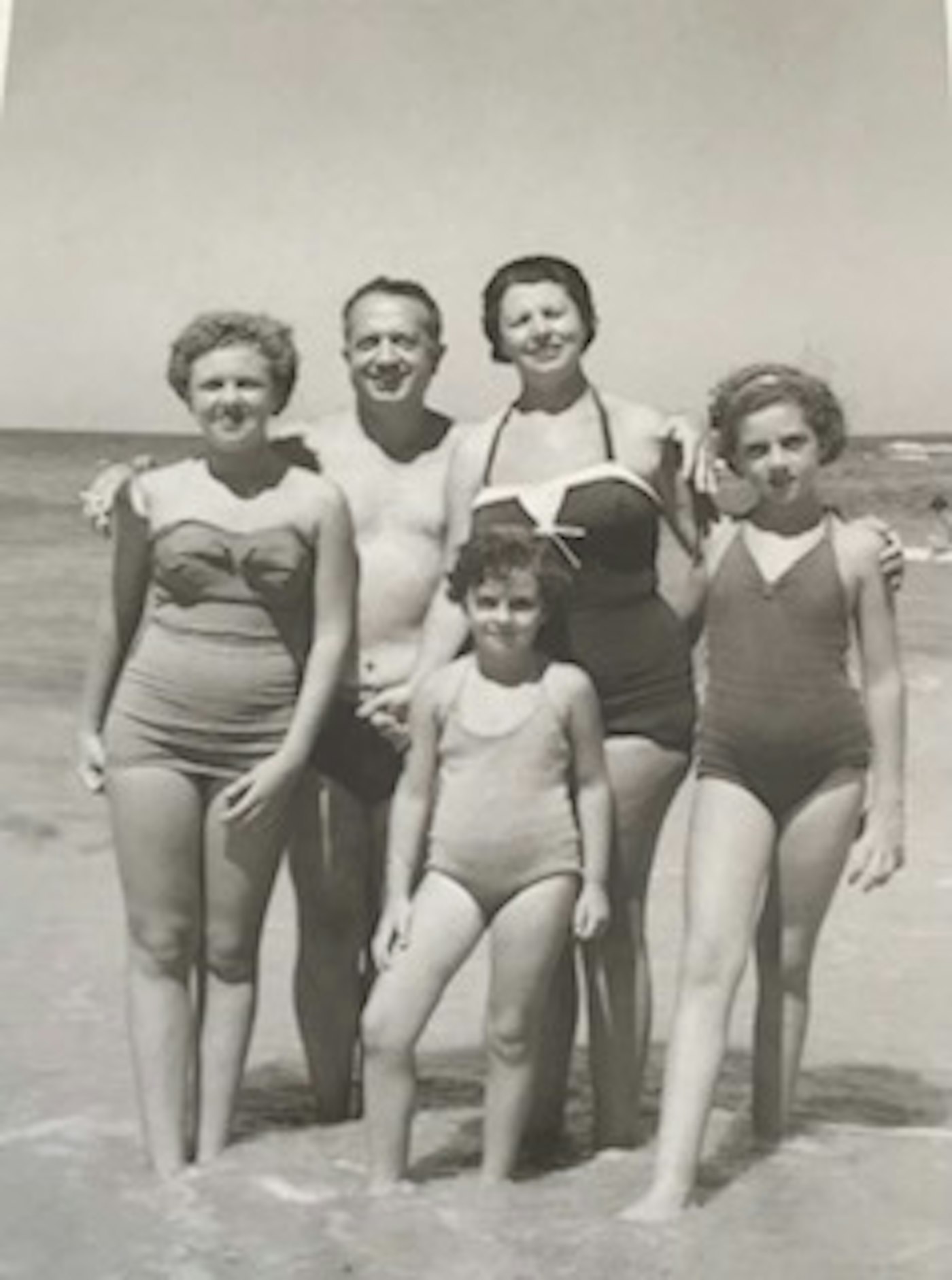Shared by Viviane Bowell


When Viviane Bowell’s family got their first refrigerator in the early 1950s, there wasn’t much food in it. Her parents went out to dinner in Cairo, where they lived, almost every night and the meals that were eaten at home like a garlic-laced stew called molokhia, were made fresh each day. What was inside the refrigerator were jars of homemade jams made from fresh strawberries, apricots, figs, and tart quince that her mother kept on hand and served to guests.
In their Egyptian Jewish community, there was a particular etiquette, Viviane explains. Guests were always welcomed with a smile and offered Turkish coffee, jams to be eaten with a spoon, and two glasses of water—one for drinking and the other to rinse their jam spoon. Orange segments in syrup, Sephardic cookies called menenas, and baklava were also sometimes on the table. When a female guest was offered a cookie, they would accept the first one. But, when it was time for a second, custom dictated that they would refuse and the host would insist. The back and forth went on for four or five rounds, says Viviane, until the guest would say “because you insist, I’ll take one.”
Her parents had a close circle of friends, mostly other Sephardic Jewish families who spoke French and kept to the community, separate from the larger Muslim Egyptian population and Coptic Christians. Her father’s family can trace their history to Toledo before the Inquisition and later to the Ottoman Empire. While her maternal grandparents came from Aleppo, Syria. Both sides came to Cairo in 1910 seeking economic opportunities.
They felt comfortable for a time living as Jews in an Arab nation, but with the establishment of Israel in 1948, things started to change. “For me, that was the beginning of the end for Jews in Arab lands. The writing was on the wall,” Viviane says. She was still little at the time, but she remembers her beloved aunts, who she saw everyday, leaving for Israel abruptly. “They were just gone, no one explained to me why,” she adds. “I never saw them again.”
Four years later, on January 26, 1952, mobs took to the streets and set foreign businesses and Jewish department stores ablaze during Black Saturday, which Viviane witnessed from her balcony. Another brutal blow was dealt to the community two years after that when Gamal Abdel Nasser assumed power.
Late one night, Viviane recalls, an officer knocked on her family’s door and presented them with expulsion papers — they had two weeks to leave the country. Like other Jews who were expelled at the time, they were forbidden from taking jewelry or other valuables with them; they were only allowed to depart with clothes. Getting seats on planes was a struggle, but her father secured tickets on KLM and the family left for England on December 10, 1956.
Viviane’s early months in a small village in the west of the country were hard. The first thing her father told the family was: “You’ve got to forget about Egypt now — and behave like the British,” she remembers. “He was ashamed, so I was going to be ashamed.” Knowing only a smattering of English and facing unwelcoming kids at school, made it even harder to let go of her past. Classmates would tease Viviane and her sister asking if they used to live in tents and have a camel.
Adapting to the food in their new home was also hard. Shortly after arriving, Viviane’s mother went to a shop to buy ingredients for a cake. When it didn’t rise properly, she checked the bag only to realize it was potato, not wheat, flour.
Very gradually, things improved, particularly when her family bought a home in Northwest London where there were kosher butchers and bakers. Other Egyptian Jews, moved in nearby in time and her family spent their Saturdays playing cards with them.
Her mother continued making jams and pastries, insisting her guests take more than just one. It’s a tradition Viviane continues today, but she says her visitors don’t know the custom of refusing several times before finally accepting. She says: “I have to remember that if they say say ‘no,’ they mean ‘no.’”

